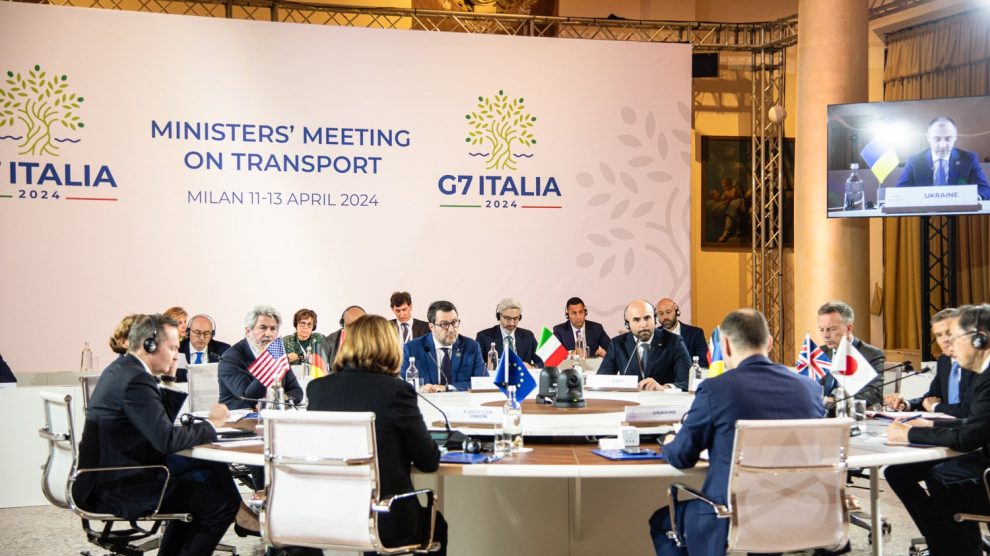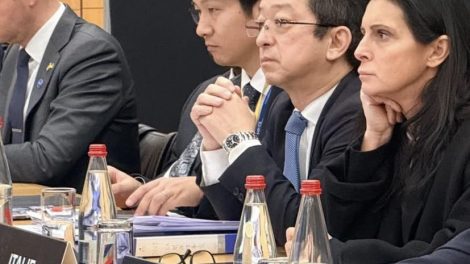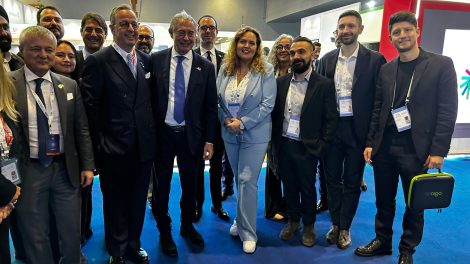G-7 ministers tackle transport. On Sunday, Italian Transport Minister Matteo Salvini chaired a meeting with his counterparts from the Group of Seven nations and European Union Transport Commissioner Adina Valean. The results of their work – which came out as a 67-points-long joint declaration – cross over into realms of economic security, supply chain resilience, technological evolution and the green transition, as ensuring connectivity in a “context of poly-crisis” and rising temperatures becomes an increasingly multifaceted challenge.
- Russia’s war against Ukraine and the Houthis’ disturbance activities in the Red Sea are heavily impacting trade routes, remarked the ministers in condemning both.
The facets of security. Cyberattacks flared up in the wake of the pandemic and Moscow’s aggression. That spilt over into the transport sector, which is increasingly dependent on new technologies, marking the growing importance of cybersecurity in modern economies. Cybersecurity and national security risks are also related to Chinese EVs and their wide array of connected sensors.
- Over in the physical world, material risks persist in the fields of raw materials and product supply; as the G-7 ministers stressed, more work needs to be done “to ensure high standards for our supply chains.”
- They established a working group on resilience of transport supply chains, “with a special focus on disruptions to transport, to share best practices and explore areas of mutual cooperation to strengthen transport resilience.”
The China angle. Even though it was never mentioned directly, Beijing was central to the conversation. Its stronghold on raw materials and its supremacy over battery-making and affordable EVs represent a potential threat to Western markets. G-7 ministers underscored existing concerns “about the systematic use of non-market policies and practices such as pervasive, opaque, and harmful industrial subsidies, market distortive practices of state-owned enterprises, and all forms of forced technology transfers, as well as other practices that undermine a level playing field and create strategic dependencies and systemic vulnerabilities, including in the auto sector.”
- “We will continue to work together in areas such as: information sharing on cybersecurity and other national security risks associated with connected and automated vehicles, addressing vulnerabilities, preventing the misuse of such technologies, as well as identifying and preventing policies and practices that intentionally create vulnerabilities,” vowed the ministers.
Sustainable tracks. Excessive economic exposure towards Chinese materials and greentech is also a factor in the success of the green transition. Minister Salvini (who has long opposed the EU’s push to ban the sale of new combustion cars by 2035, calling it a favour to Chinese automakers) underscored the G-7’s call for tech neutrality. He and his colleagues acknowledged that the transition must be “socially and economically just and affordable, efficient, outcome-based and technology-neutral.”
- G-7 countries reiterated their commitment to “rapidly and significantly reduc[e] greenhouse gas emissions from all modes of transport” while “also determining the optimal way to move people and goods,” underscoring the importance of mutual cooperation in sharing information, best practices, and regulatory approaches.
- They called to expand investments in low-emission vehicle infrastructure, charging points, alternative and low-carbon fuels, set to become crucial in decarbonising air transport.
- Finally, they highlighted the urgency of expanding multimodal and sustainable modes of transport, such as public transport and railways.
Outreach to developing countries. The key to solving several of these challenges lies in global coordination, and the G-7 ministers took note of that. The document explicitly name-checks the G-7 PGII (cradle of the IMEC Corridor) and the EU’s Global Gateway strategy, as well as the “benefit of infrastructure certification schemes, such as the Blue Dot Network initiative, and the FAST-Infra, which aim to advance high standards for quality infrastructure and mobilise increased private investment in low- and middle-income partner countries.”





